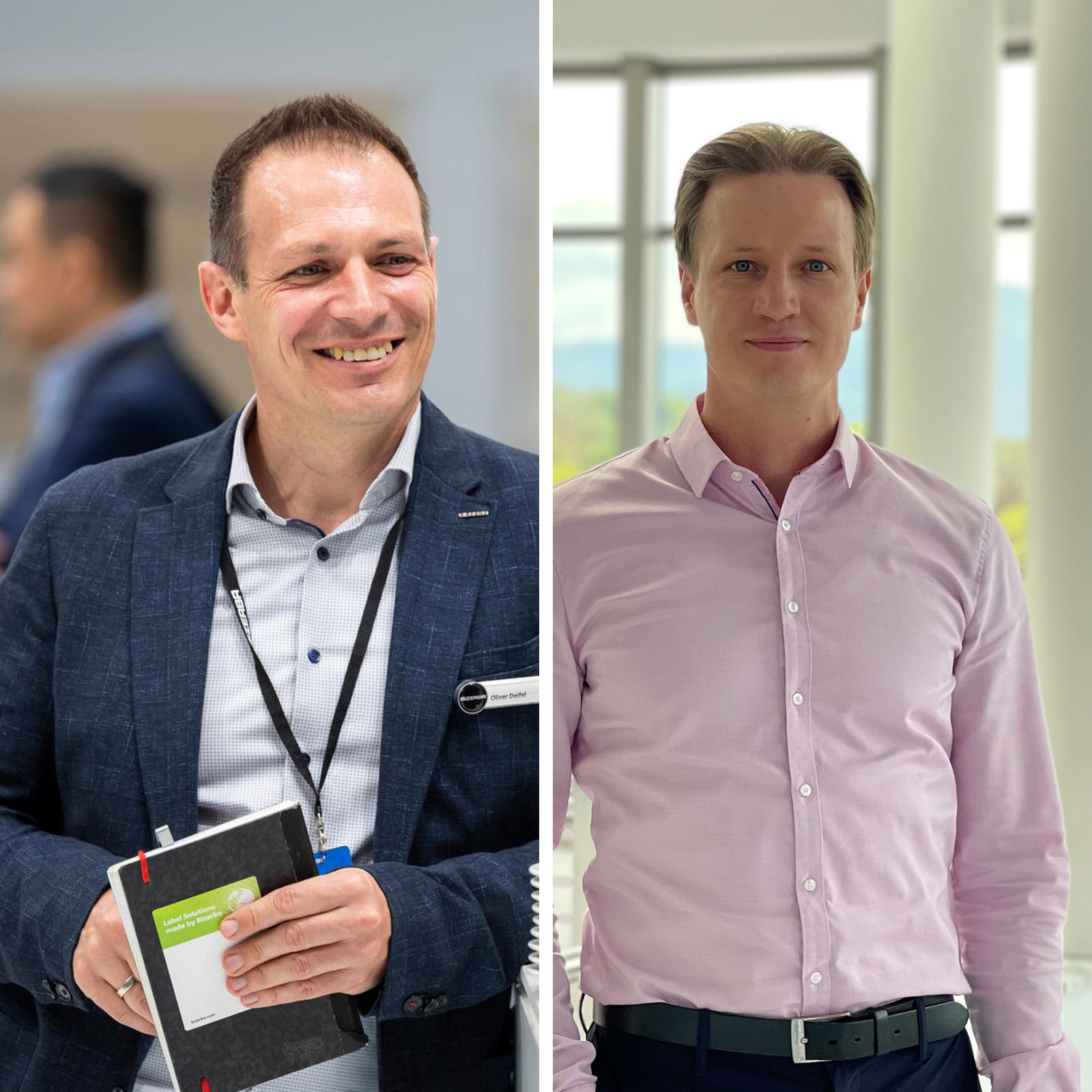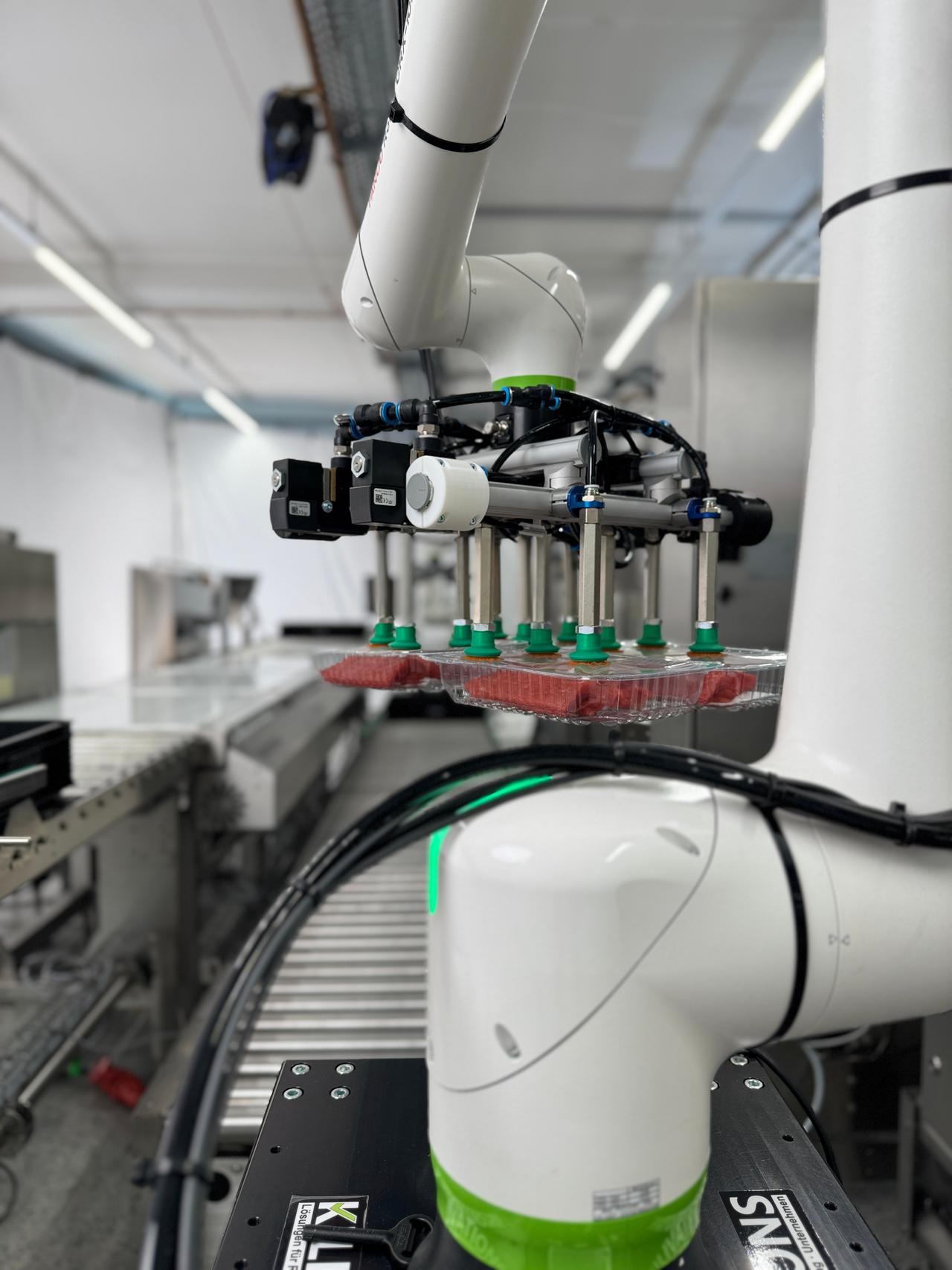Automation is not an end in itself

Eduard Schirling | I'm a fan of technology and find it all the more exciting the more intelligently a store is designed. I am inspired by the idea that an optimally coordinated system can function efficiently and close to the customer. The system can also help to overcome challenges. To be honest, it's sad when, for example, fresh food counters close just because there is a lack of staff. I am convinced that we can create real change here with smart automation solutions.
Oliver Deifel | For me, it's the visible added value. I love it when an idea becomes a real project from which customers ultimately benefit noticeably. That's why I like to contribute my experience, try new approaches and try out the unusual. When it works, that's my greatest motivation.
Eduard | I have been working in the retail sector at Bizerba for eight years and am currently head of the Professional Services department. Our focus is on individual solutions for the food retail sector, for example to optimize store processes or for automated store concepts. I find pragmatic approaches to robotics particularly exciting, for example for operating processes at the fresh food counter.
Oliver | I have been working in the industrial environment for almost 20 years. Today, I am globally responsible for the Customer Solution Center Industry. The topic of automation has always been present here, but classic systems often fail due to the variety of products in the SME sector. That's why we think in terms of holistic solutions that also intelligently integrate manual steps. Robotics is an important building block here.
Oliver | A lot has changed since the pandemic. Staff shortages, cost pressure and hygiene requirements are creating new priorities. In SMEs in particular, many processes are still carried out manually, even though this affects availability and quality. We recognize the need, but we don't offer a standard solution, but a modular kit that is adapted to the reality on site.
Eduard | I also see this in the store environment. The demand for automation is increasing - not only in supermarkets, but also in the travel and food service sector, in hospitals and in university catering. In workshops with Tier 1 customers, for example, we have developed ideas for fresh food counters with robotic arms. The interest is huge - and so is the potential.
Eduard | We supply cutting, weighing, packaging and labeling solutions from a single source - including intelligent networking. At automatica in Munich, for example, we presented an automated sandwich line consisting of a VSI cutting machine, a robot arm and a dosing system. The special thing about it is that the systems communicate perfectly with each other. This integration capability is our USP - hardly any other provider in the retail environment offers this.
Oliver | In industry, we act as a system integrator. Our end-of-line solutions range from product handling, inspection, labeling and caseloading to palletizing. Everything is scalable and customizable. Despite the high level of automation, we also allow manual intervention for products that cannot be processed automatically. This makes us extremely flexible and practical.
Space is a huge issue, which is why our solutions have to be compact. Large systems are not worthwhile here. We rely on modular systems with familiar user interfaces. This means that even an unskilled operator can work intuitively. Another important aspect is hygiene: our customers expect the highest standards with minimal maintenance. We take this into account right from the design stage.
The classic ROI doesn't go far enough. Anyone who reduces automation to savings alone is missing the big picture: it's about stable processes, consistent quality and data integration. A rethink is necessary, it is not simply a matter of using robots instead of people. This complexity is often underestimated. This is exactly where we support our customers, help them to change their perspective and thus ensure the success of the project.
Eduard | In retail, we are clearly seeing a trend towards 'self-everything'. Smart stores, self-service and the automation of fresh food processes are gaining momentum. New market players from the field of robotics are also entering the market. Our wide-ranging portfolio enables us to respond flexibly - from intelligent object recognition using AI to innovative solutions for automated store concepts.
Oliver | Industry is all about trust. Automation not only secures processes, but often also livelihoods. If we manage to communicate added value such as higher OEE, preventive maintenance or data transparency, then we will take the industry with us. That's what we stand for at Bizerba - and it's a great opportunity.
Oliver | Clearly: a system that automatically washes and irons my shirts in the evening and puts them away in the wardrobe. With a view to humanoid robotics, that might not be so far off.
Eduard | I'll take that too.
Time for automation?
Your message is on it’s way
The form was sent successfully
Oops, something went wrong here
An error occurred when sending the form. Please try again



